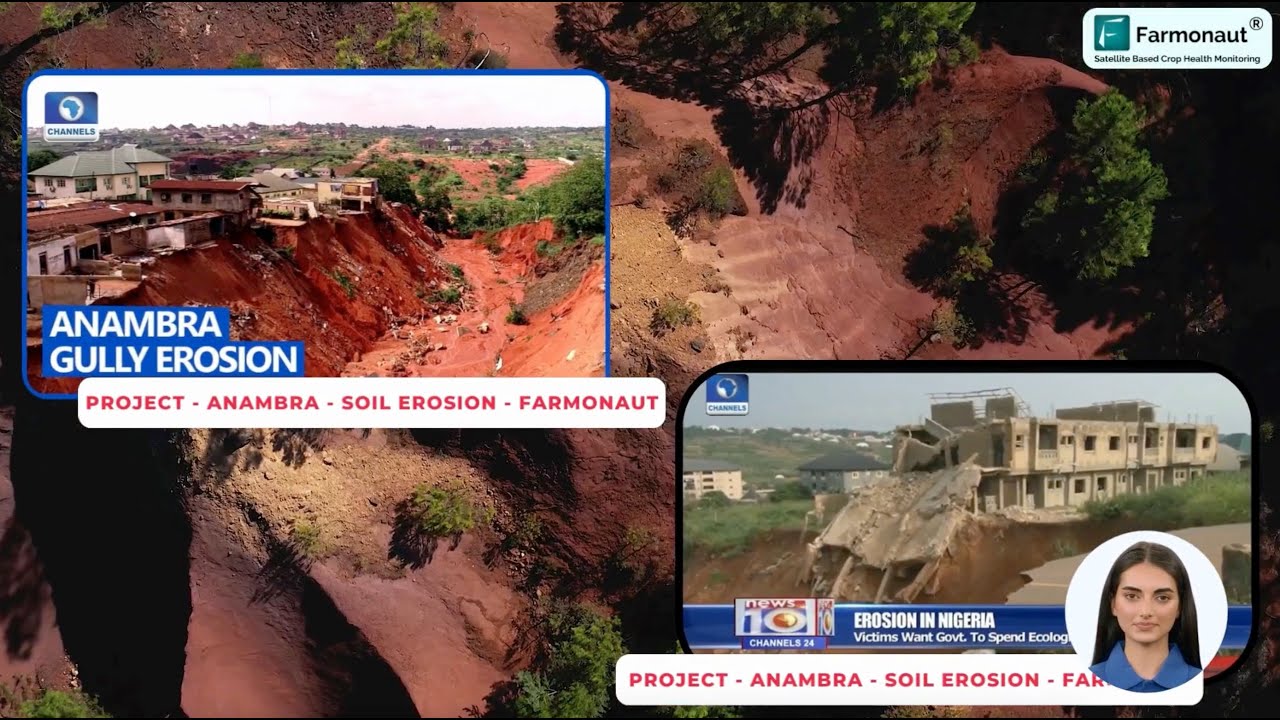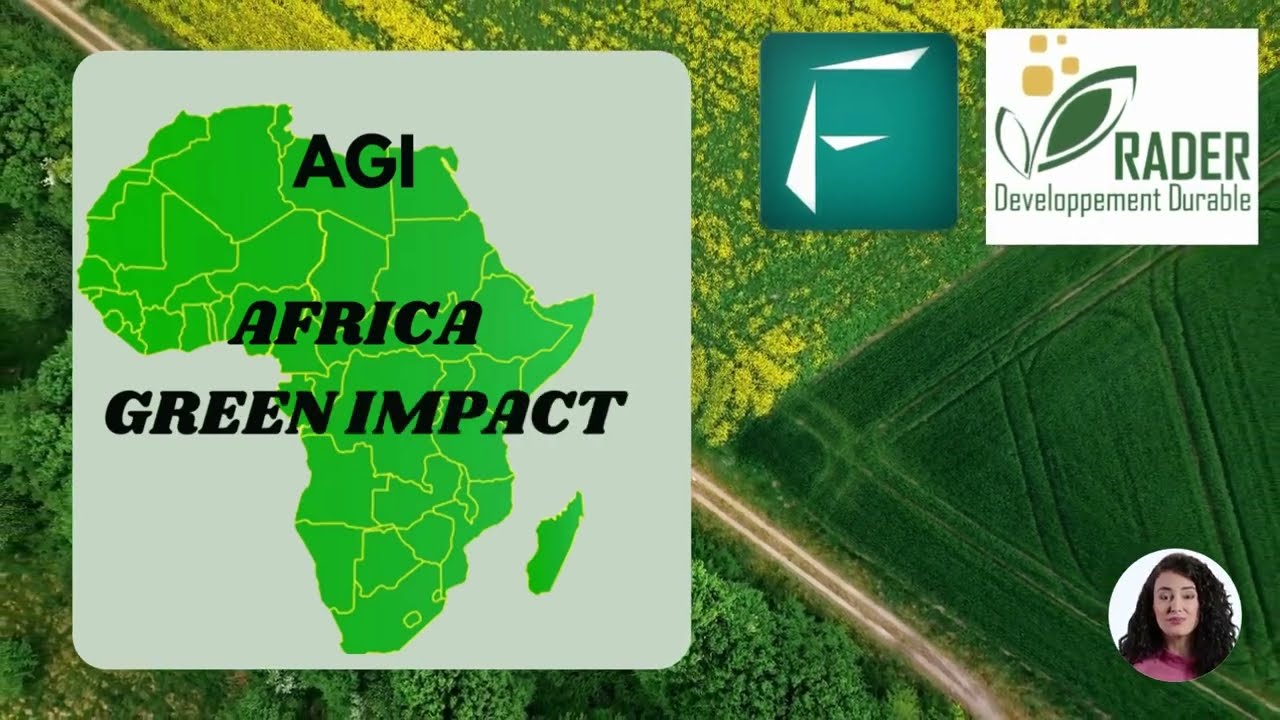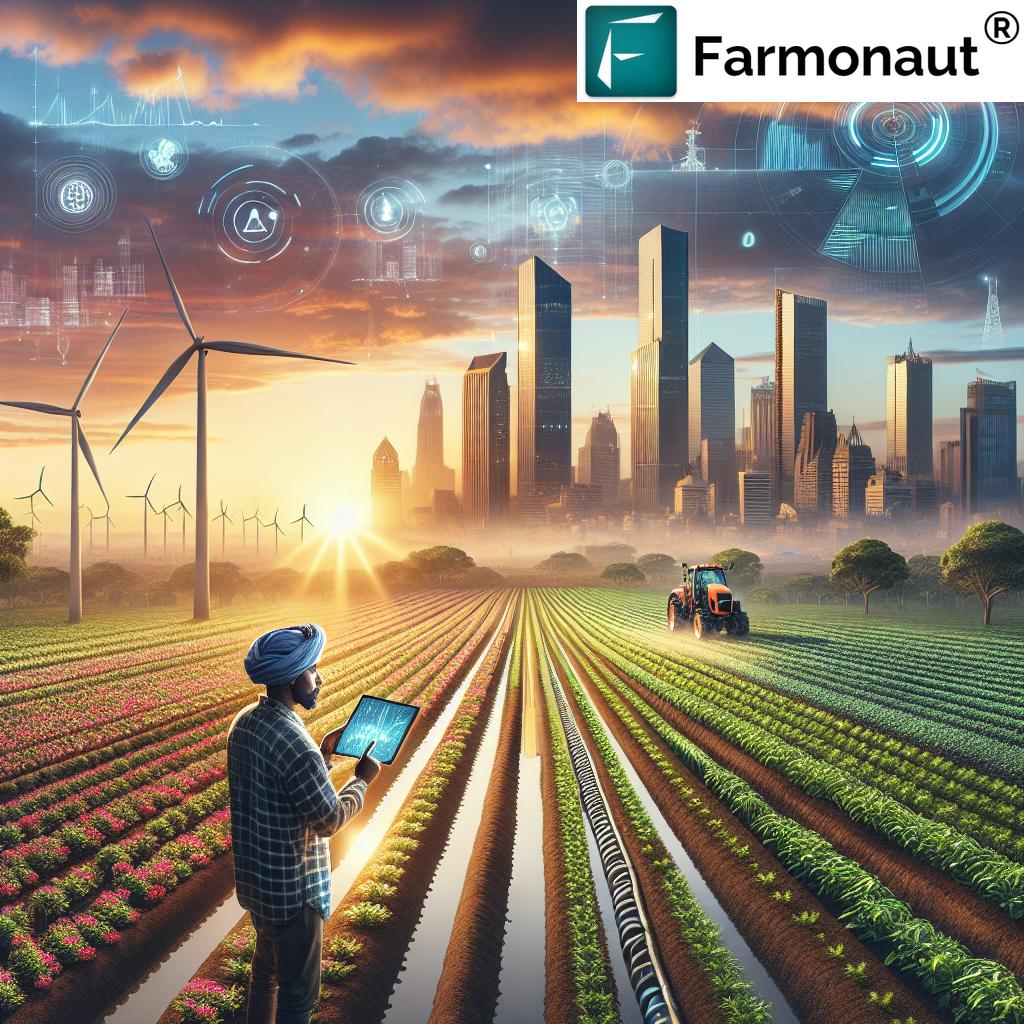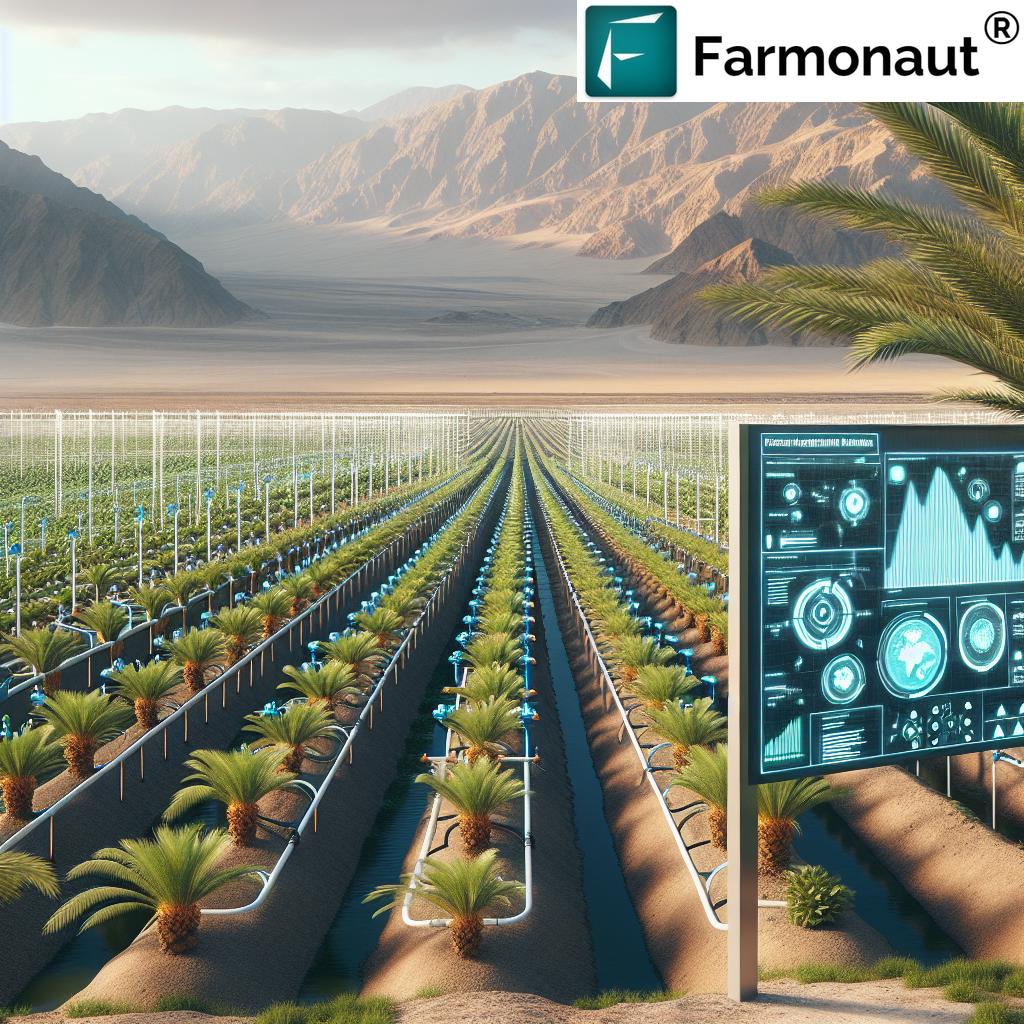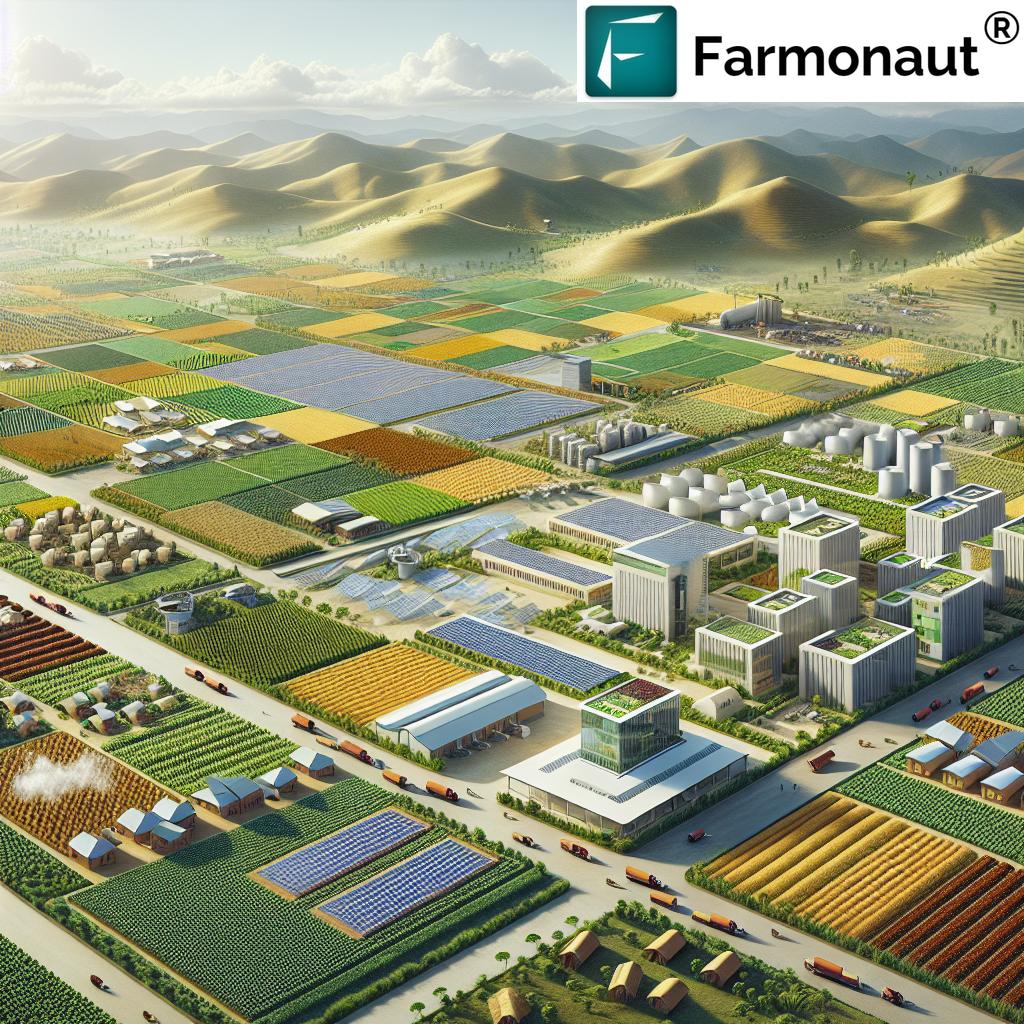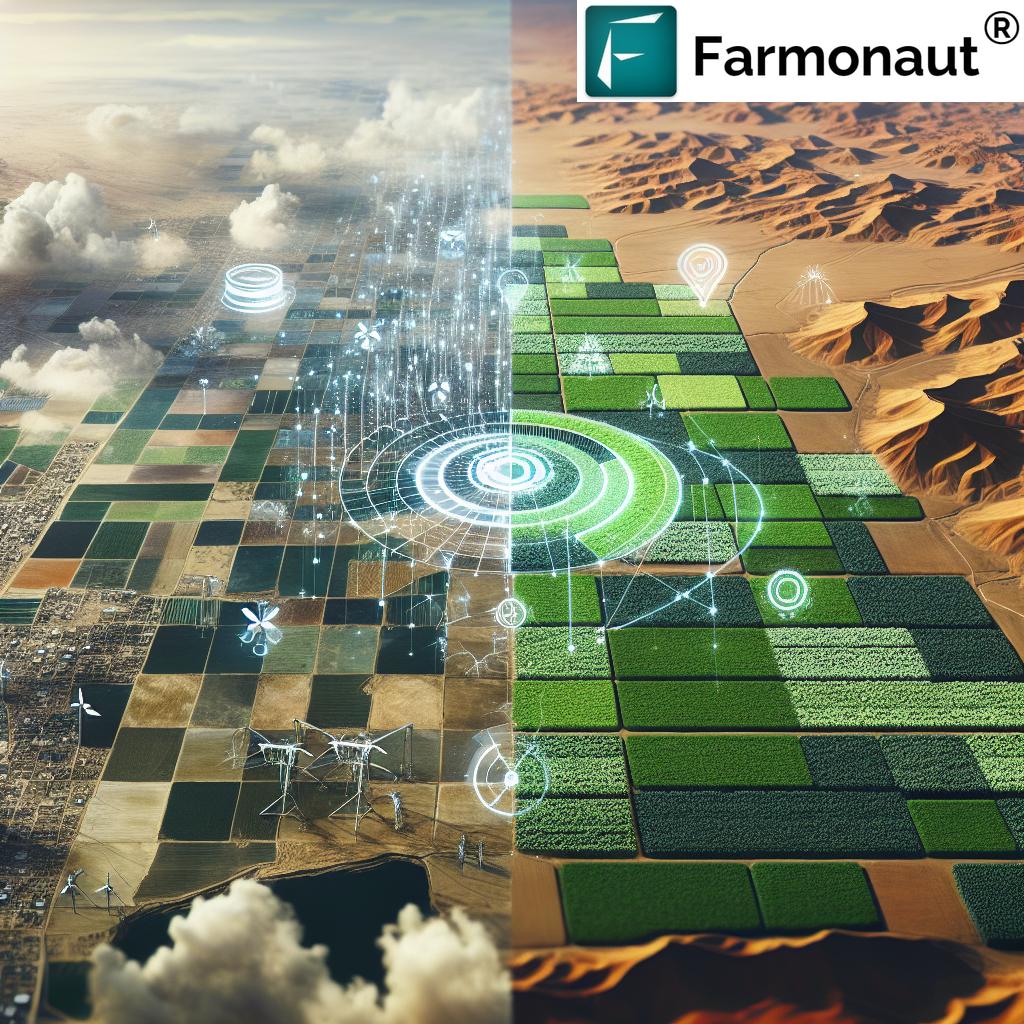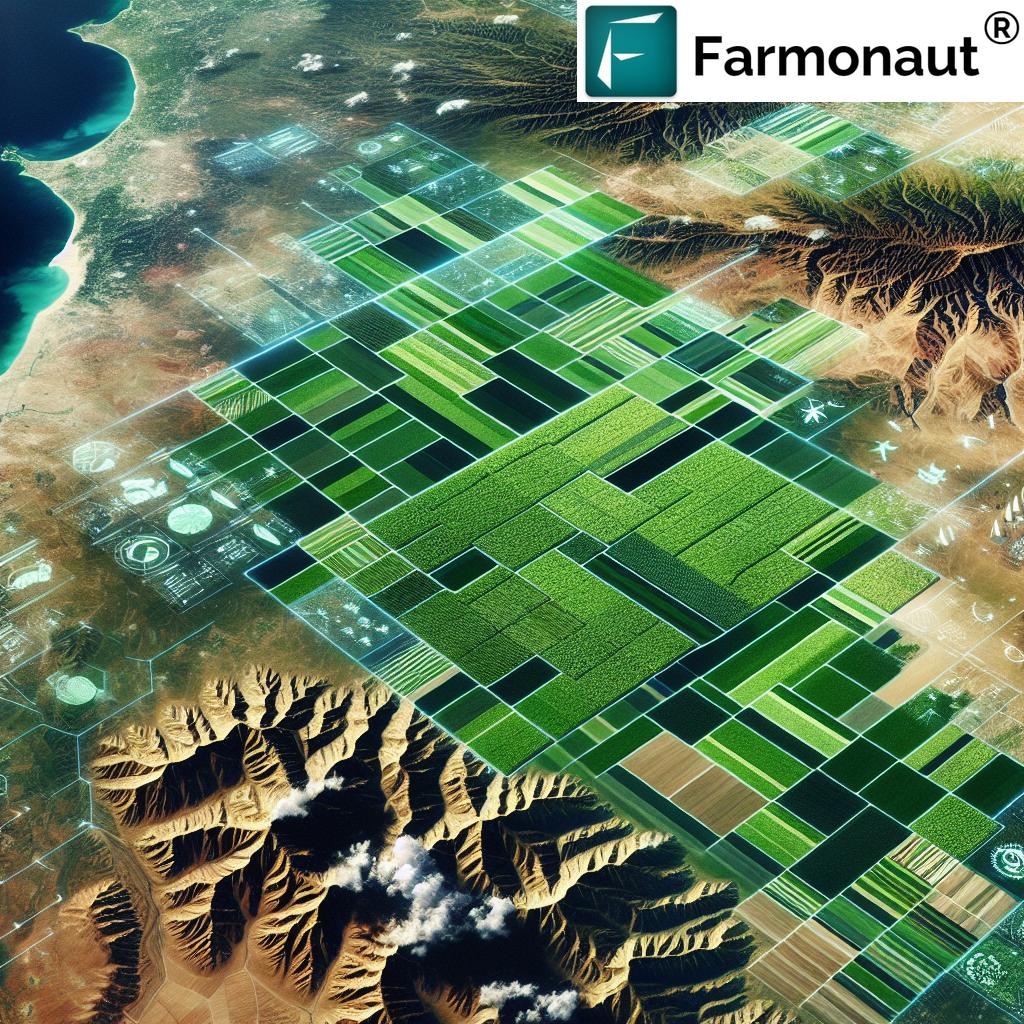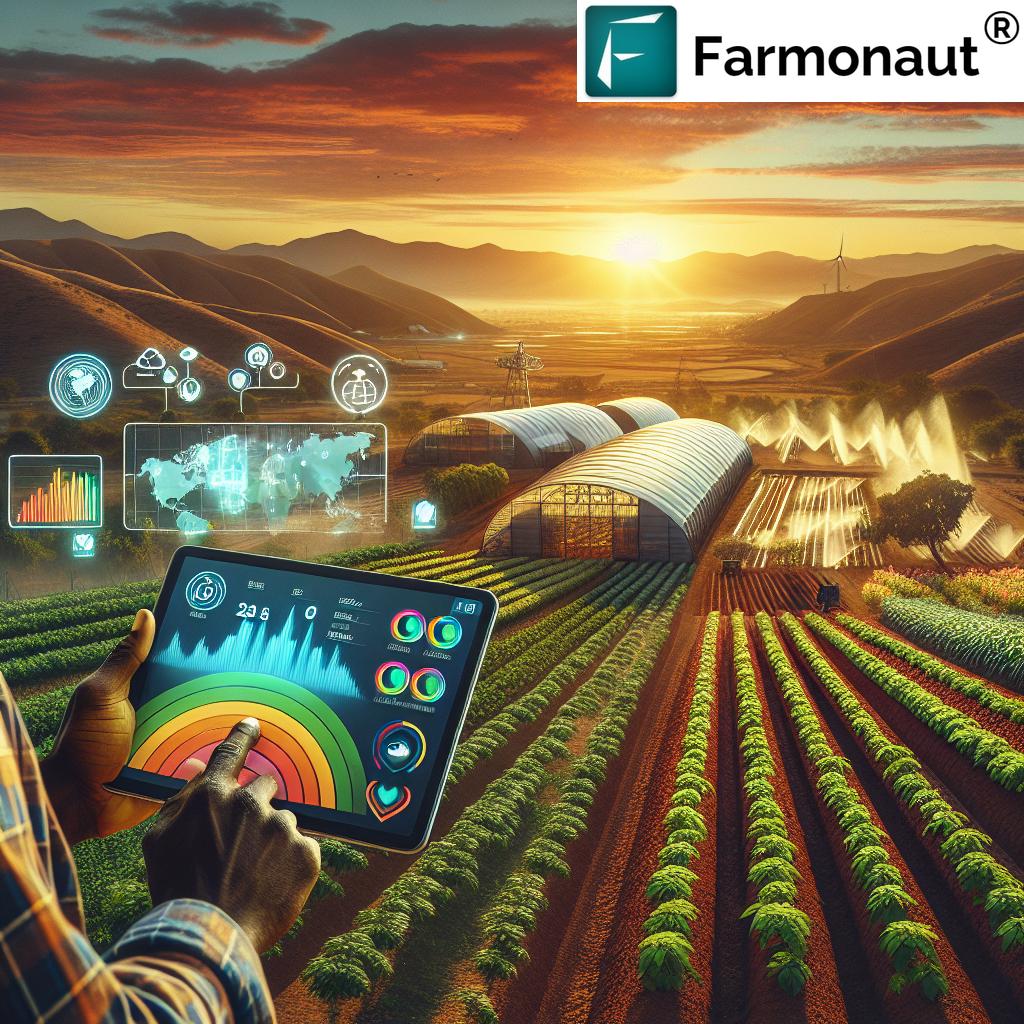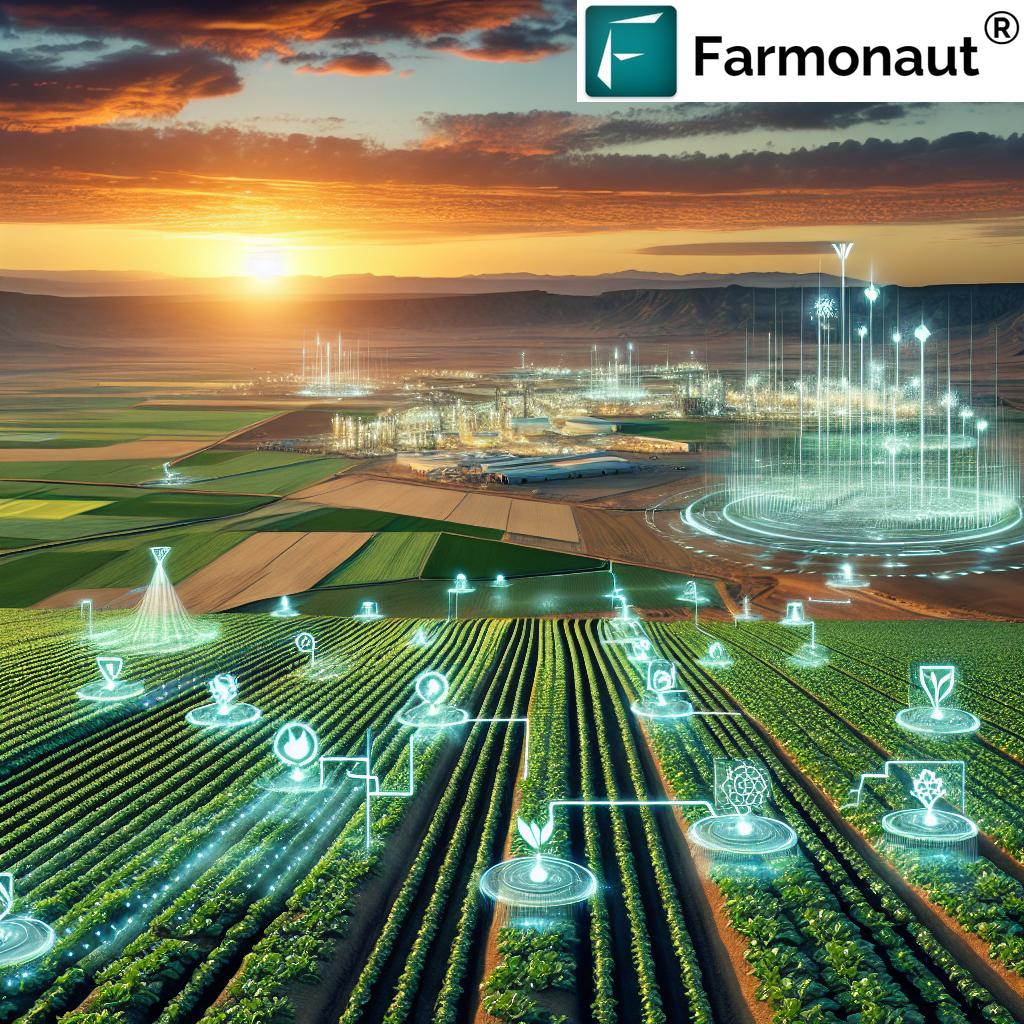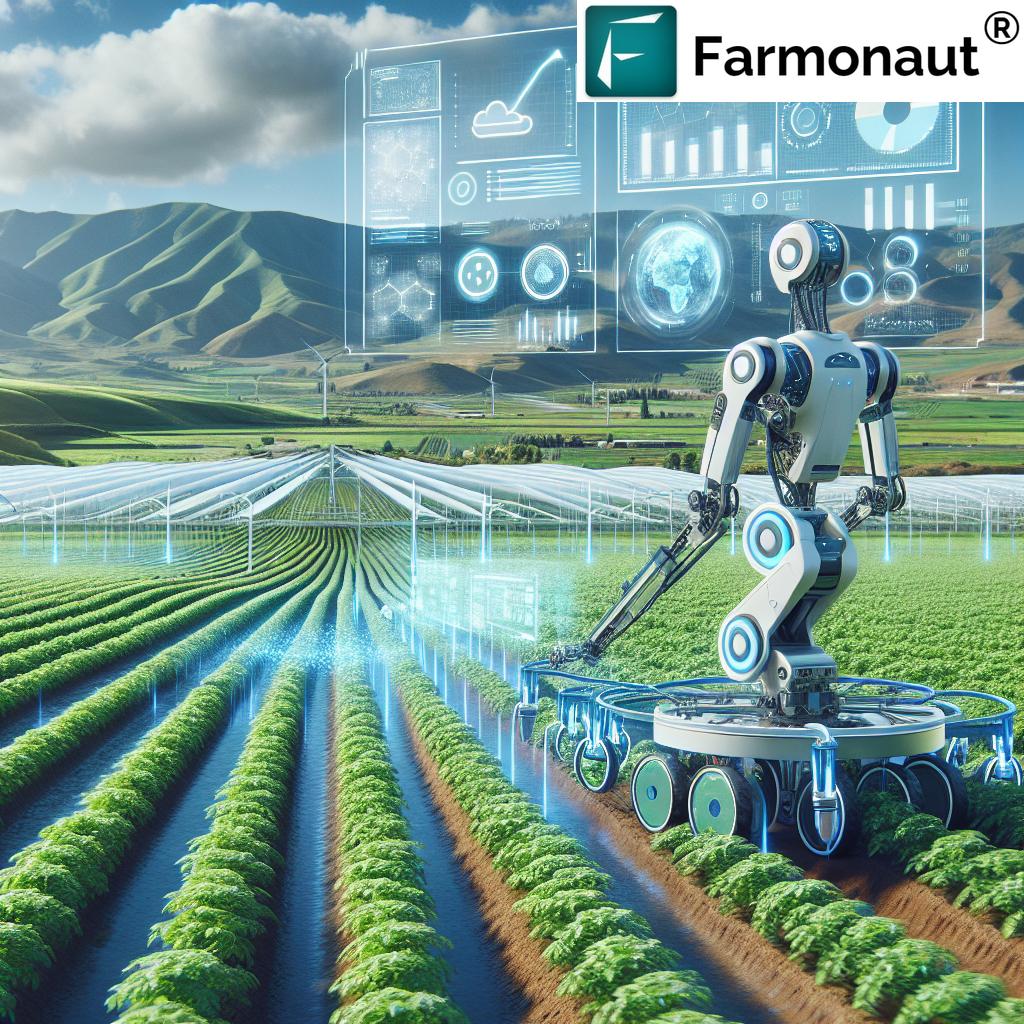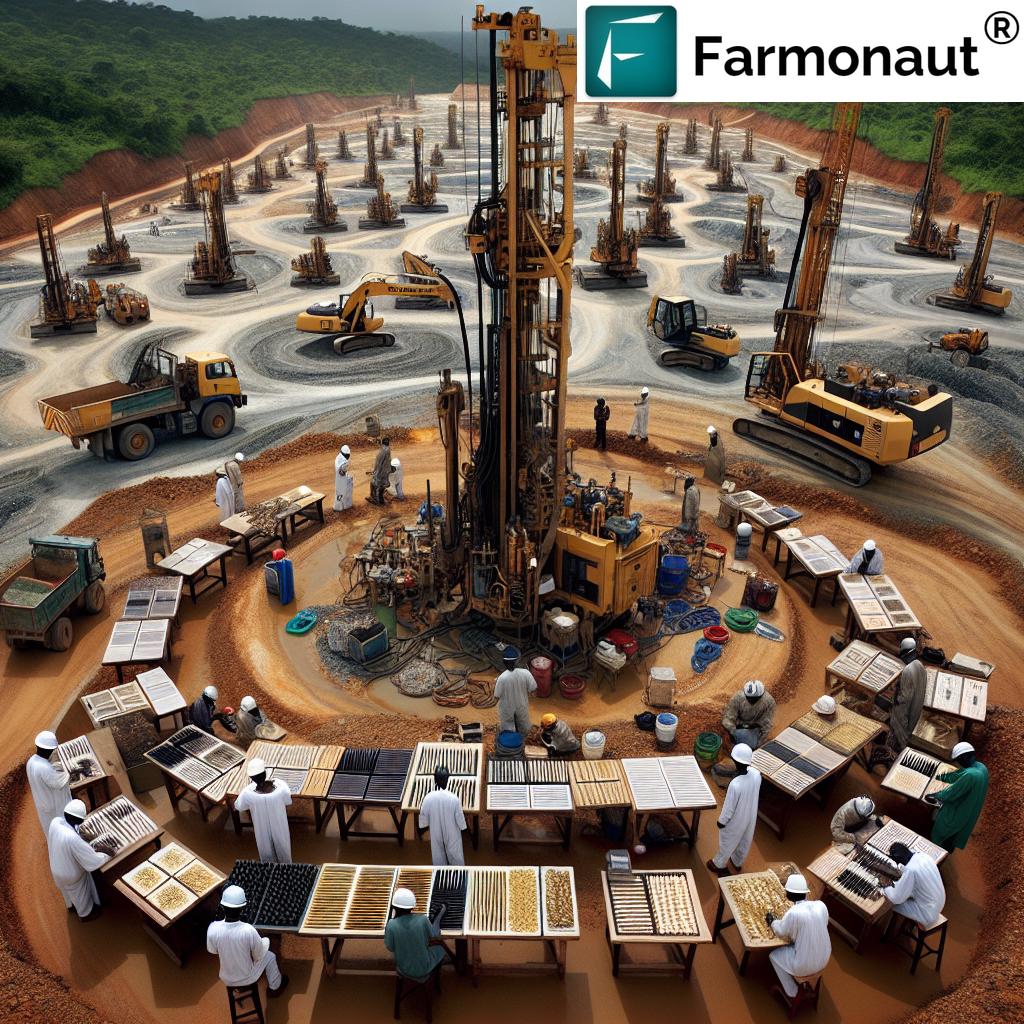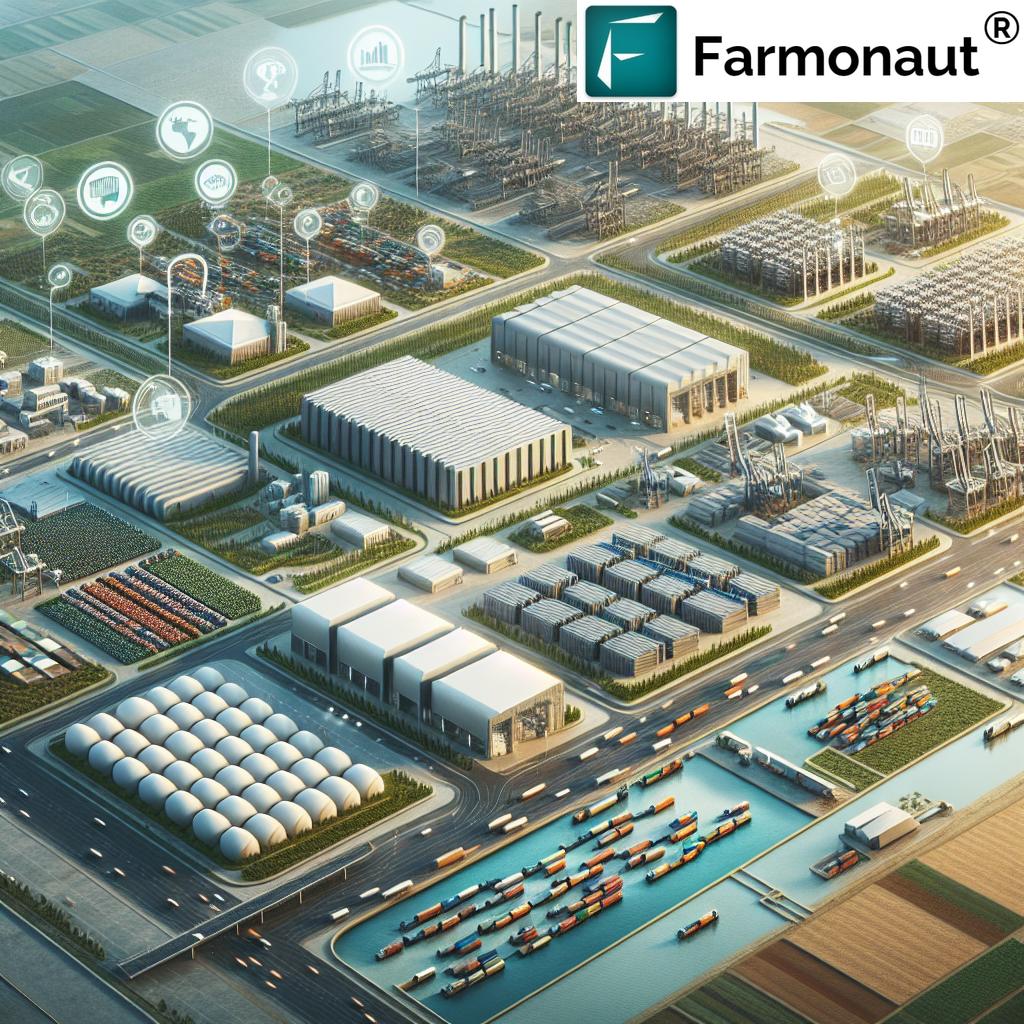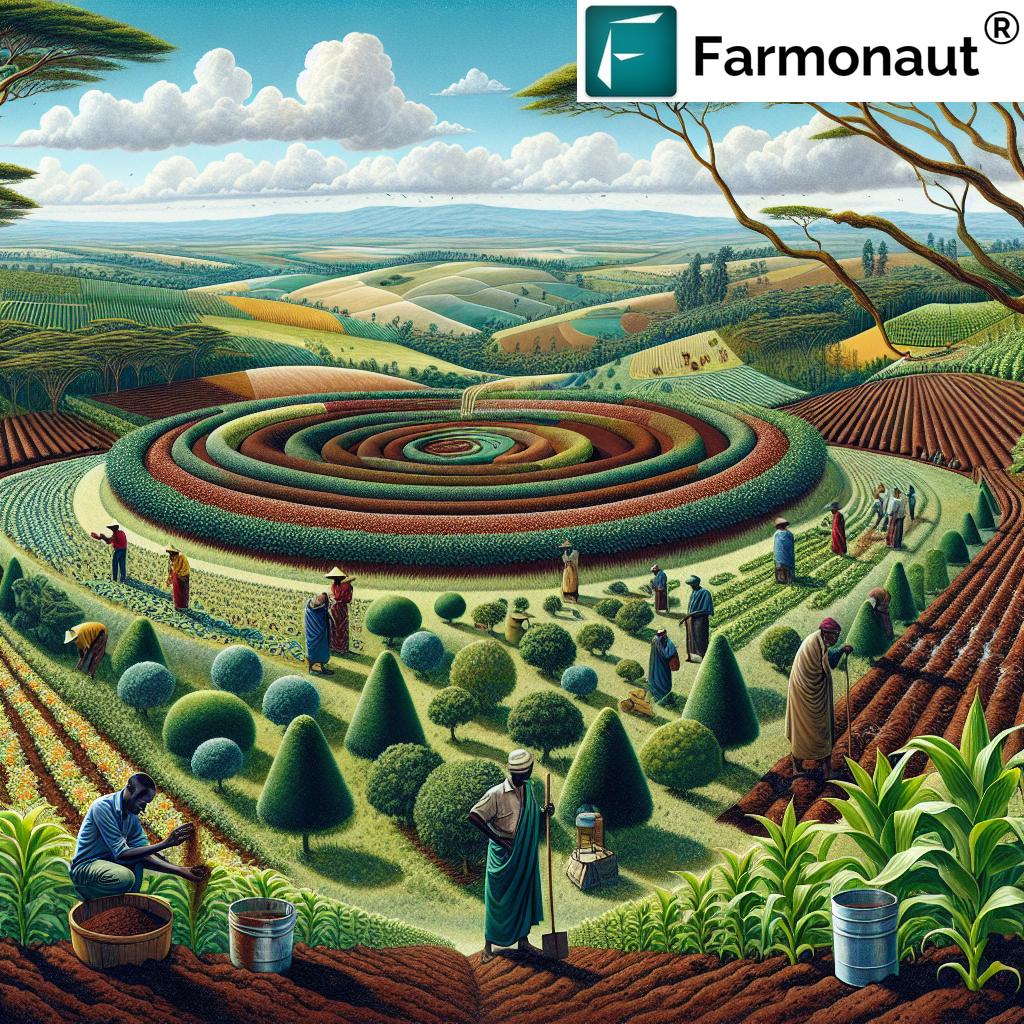Morocco’s Strategic Role in Africa-Europe Agricultural Cooperation: Advancing Sustainable Farming and Renewable Energy
“Morocco’s renewable energy initiatives aim to produce 52% of its electricity from renewable sources by 2030.”
In recent years, we have witnessed a significant shift in the geopolitical landscape of the Mediterranean region, with Morocco emerging as a key player in fostering cooperation between Africa and Europe. The country’s strategic initiatives in sustainable agriculture, renewable energy, and regional security have positioned it as a crucial bridge between the two continents. In this comprehensive analysis, we will explore Morocco’s multifaceted approach to advancing prosperity, sustainability, and stability in the Mediterranean region, offering valuable insights into the evolving dynamics of Africa-Europe relations and the future of agriculture in a changing climate.
Morocco’s Vision for Sustainable Agriculture in Africa
At the heart of Morocco’s strategic role in Africa-Europe agricultural cooperation is its commitment to promoting sustainable agriculture across the African continent. The country has launched several initiatives aimed at enhancing agricultural resilience and productivity, with far-reaching implications for both African and European partners.
- The AAA Initiative (Adaptation of African Agriculture)
- Climate-resilient farming practices
- Precision agriculture technology
- Agricultural technical support
One of the most significant projects spearheaded by Morocco is the AAA Initiative, launched in 2016. This ambitious program aims to enhance sustainability in African agriculture by improving technical support and addressing the challenges posed by climate change. By focusing on climate-resilient farming practices, the initiative seeks to stabilize rural economies across the continent, thereby mitigating forced migration and enhancing food security.
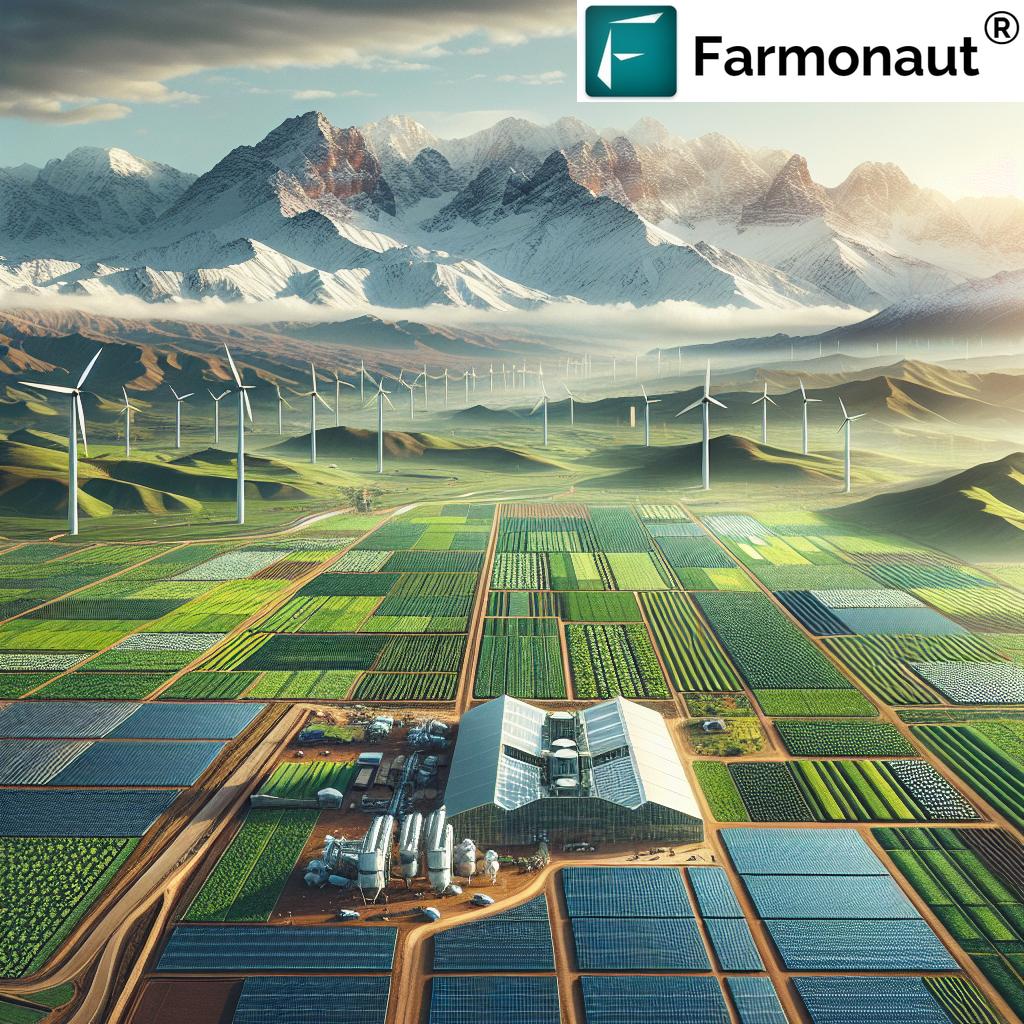
Morocco’s commitment to agricultural adaptation to climate change is evident in its promotion of precision agriculture technology. By leveraging advanced satellite imagery and data analytics, Moroccan farmers are able to optimize resource utilization and improve crop yields. This technology transfer to other African nations is crucial for building resilience against the impacts of climate change on agriculture.
Furthermore, Morocco has been instrumental in providing agricultural technical support to neighboring African countries. Through knowledge-sharing programs and capacity-building initiatives, Morocco is helping to disseminate best practices in sustainable farming across the continent. This not only strengthens Africa’s agricultural sector but also contributes to the stability of food supply chains that extend into Europe.
Renewable Energy: Morocco’s Green Revolution
Morocco’s leadership in renewable energy, particularly in green hydrogen production, is reshaping the energy landscape of the Mediterranean region. The country’s ambitious plans for sustainable energy development are not only addressing its domestic needs but are also positioning Morocco as a key player in the global energy transition.
- Solar and wind energy projects
- Green hydrogen production
- Regional energy cooperation
- Energy security initiatives
Morocco’s commitment to renewable energy is exemplified by its large-scale solar and wind energy projects. The Noor Ouarzazate Solar Complex, one of the world’s largest concentrated solar power plants, stands as a testament to Morocco’s vision for a sustainable energy future. These projects not only contribute to Morocco’s goal of producing 52% of its electricity from renewable sources by 2030 but also serve as models for other African nations looking to transition to clean energy.
The country’s focus on green hydrogen production is particularly noteworthy. Through strategic partnerships with international energy companies, Morocco is positioning itself as a potential global leader in this emerging sector. The development of green hydrogen production capabilities not only diversifies Morocco’s energy portfolio but also opens up new avenues for cooperation with European partners seeking to decarbonize their economies.
Regional energy cooperation is another critical aspect of Morocco’s strategy. The Nigeria-Morocco gas pipeline project exemplifies the country’s commitment to fostering energy security in West Africa and beyond. This ambitious project, once completed, will not only strengthen energy infrastructure across multiple African countries but also provide a potential new source of natural gas for European markets.
Rural Economy Development and Climate-Resilient Farming
“Morocco’s agricultural sector employs approximately 40% of the country’s workforce and contributes 14% to its GDP.”
Morocco’s approach to rural economy development is closely intertwined with its efforts to promote climate-resilient farming practices. By focusing on these interconnected areas, Morocco is addressing pressing issues such as rural poverty, food security, and migration, while also strengthening the foundation for sustainable agricultural cooperation between Africa and Europe.
- Modernization of traditional farming methods
- Investment in rural infrastructure
- Promotion of agribusiness and value-added products
- Support for smallholder farmers
The modernization of traditional farming methods is a key component of Morocco’s rural development strategy. By introducing advanced irrigation systems, drought-resistant crop varieties, and sustainable soil management techniques, Morocco is helping farmers adapt to changing climatic conditions while improving productivity. These efforts not only enhance food security within Morocco but also contribute to the stability of agricultural supply chains that extend into Europe.
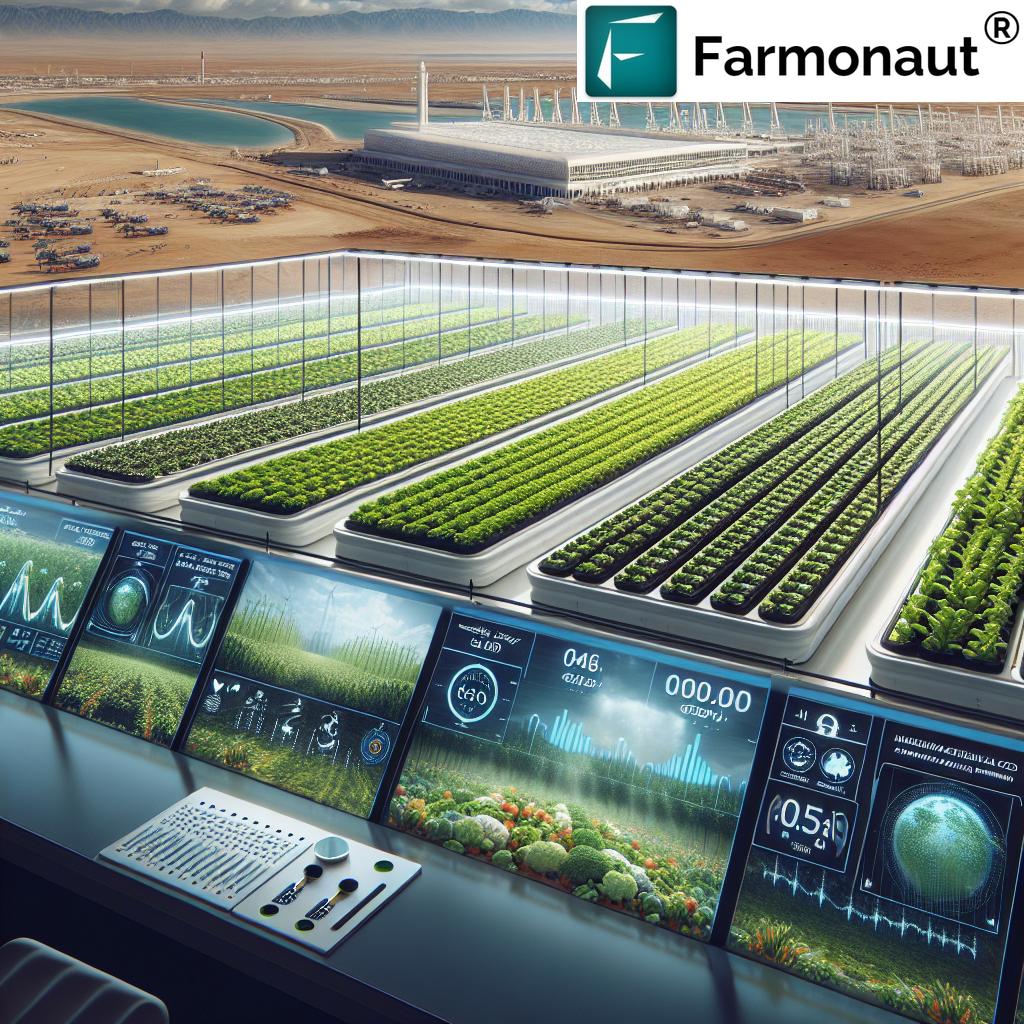
Investment in rural infrastructure is another crucial aspect of Morocco’s approach. By improving roads, electrification, and access to markets, the country is creating an enabling environment for agricultural growth and rural prosperity. These investments not only benefit Moroccan farmers but also create opportunities for European agribusinesses looking to engage with African markets.
The promotion of agribusiness and value-added products is helping to diversify rural economies and create new employment opportunities. By encouraging the processing of agricultural products within rural areas, Morocco is fostering the development of small and medium-sized enterprises that can compete in both domestic and international markets.
Support for smallholder farmers is a cornerstone of Morocco’s rural development strategy. Through targeted programs that provide access to financing, training, and modern agricultural inputs, Morocco is empowering smallholders to increase their productivity and resilience. This approach not only contributes to food security but also helps to stem rural-urban migration by creating viable livelihoods in rural areas.
Strengthening Africa-Europe Agricultural Cooperation
Morocco’s efforts to strengthen agricultural cooperation between Africa and Europe are multifaceted, encompassing trade, technology transfer, and joint research initiatives. By leveraging its unique geographic and cultural position, Morocco is playing a pivotal role in bridging the gap between the two continents and fostering mutually beneficial partnerships.
- Facilitation of agricultural trade
- Technology transfer and innovation sharing
- Joint research programs
- Capacity building and knowledge exchange
The facilitation of agricultural trade between Africa and Europe is a key focus of Morocco’s strategy. By upgrading its port infrastructure and streamlining customs procedures, Morocco is positioning itself as a crucial hub for agricultural exports from Africa to European markets. This not only benefits Moroccan producers but also creates opportunities for farmers across the continent to access lucrative European markets.
Technology transfer and innovation sharing are critical components of Morocco’s approach to strengthening agricultural cooperation. By partnering with European research institutions and agribusinesses, Morocco is facilitating the transfer of advanced agricultural technologies to African farmers. This includes precision agriculture tools, drought-resistant crop varieties, and innovative water management techniques.
Joint research programs between Moroccan, African, and European institutions are helping to address common challenges in agriculture and food security. These collaborations focus on areas such as climate-resilient crop varieties, sustainable pest management, and efficient irrigation systems. By pooling resources and expertise, these programs are accelerating the development of solutions that benefit farmers on both continents.
Capacity building and knowledge exchange initiatives are central to Morocco’s role in fostering agricultural cooperation. Through training programs, workshops, and exchange visits, Morocco is helping to build a network of skilled agricultural professionals across Africa. This not only enhances the capacity of African countries to develop their agricultural sectors but also creates opportunities for European partners to engage with a more skilled and productive African agricultural workforce.
Morocco’s Role in Regional Security and Stability
Morocco’s efforts to promote agricultural development and energy cooperation are closely linked to its broader role in ensuring regional security and stability. By addressing the root causes of instability, such as poverty and resource scarcity, Morocco is contributing to a more secure and prosperous Mediterranean region.
- Counterterrorism and security cooperation
- Migration management initiatives
- Conflict resolution and mediation efforts
- Economic development as a stability tool
Counterterrorism and security cooperation are key areas where Morocco is playing a crucial role. The country’s expertise in combating extremism and its strategic location make it an important partner for both African and European nations in addressing security challenges. Morocco’s approach, which combines security measures with socio-economic development, serves as a model for comprehensive security strategies in the region.
Migration management is another critical aspect of Morocco’s contribution to regional stability. By investing in rural development and creating economic opportunities, Morocco is addressing some of the root causes of irregular migration. Additionally, the country’s cooperation with European partners on border management and legal migration pathways is helping to create a more orderly and humane approach to migration in the Mediterranean region.
Morocco’s efforts in conflict resolution and mediation have been instrumental in promoting stability in various parts of Africa. The country’s diplomatic initiatives, particularly in the Sahel region, demonstrate its commitment to peaceful resolution of conflicts and its role as a stabilizing force in the continent.
Economic development as a stability tool is a core principle of Morocco’s regional strategy. By promoting sustainable agriculture, renewable energy, and rural development, Morocco is creating economic opportunities that contribute to social stability and reduce the appeal of extremist ideologies. This approach aligns with European interests in fostering a stable and prosperous southern neighborhood.
The Future of Africa-Europe Agricultural Cooperation: Morocco’s Vision
As we look to the future, Morocco’s strategic role in Africa-Europe agricultural cooperation is set to become even more significant. The country’s vision for sustainable agriculture, renewable energy, and regional stability offers a blueprint for addressing some of the most pressing challenges facing both continents.
- Expansion of sustainable farming practices
- Deepening of renewable energy partnerships
- Enhancement of food security and supply chain resilience
- Promotion of circular economy principles in agriculture
The expansion of sustainable farming practices across Africa, guided by Morocco’s experience and expertise, has the potential to transform the continent’s agricultural sector. By scaling up initiatives like the AAA and promoting climate-resilient farming techniques, Morocco is helping to build a more resilient and productive African agriculture that can meet the growing food demands of both Africa and Europe.
Deepening renewable energy partnerships between Morocco, other African nations, and European countries will be crucial for addressing climate change and ensuring energy security. Morocco’s green hydrogen initiatives, in particular, offer exciting possibilities for clean energy cooperation that could revolutionize both energy and agricultural sectors.
Enhancement of food security and supply chain resilience will be a key focus of future cooperation. Morocco’s efforts to modernize its agricultural sector and strengthen links between African producers and European markets provide a model for creating more robust and diversified food supply chains that can withstand future shocks.
The promotion of circular economy principles in agriculture represents an innovative approach to sustainability that Morocco is championing. By encouraging the reuse of agricultural waste, water conservation, and sustainable packaging, Morocco is helping to create a more environmentally friendly and economically efficient agricultural sector.
Conclusion: Morocco as a Catalyst for Sustainable Development
Morocco’s strategic role in Africa-Europe agricultural cooperation represents a vision for sustainable development that transcends borders and bridges continents. By leveraging its unique position, expertise, and resources, Morocco is catalyzing positive change across multiple sectors, from agriculture and energy to security and migration management.
The country’s initiatives in sustainable agriculture, renewable energy, and rural development are not only addressing pressing challenges within Africa but also creating opportunities for mutually beneficial partnerships with Europe. As climate change continues to pose significant threats to global food security and stability, Morocco’s leadership in promoting resilient and sustainable practices becomes ever more crucial.
Looking ahead, the success of Morocco’s approach will depend on continued commitment, innovation, and collaboration from all stakeholders. By fostering deeper cooperation between African and European partners, supporting technological innovation, and prioritizing sustainable development, Morocco is helping to chart a course towards a more prosperous, stable, and sustainable future for the Mediterranean region and beyond.
As we navigate the complex challenges of the 21st century, Morocco’s strategic vision offers valuable lessons and opportunities for those seeking to build bridges between Africa and Europe. The country’s multifaceted approach to agricultural cooperation, energy transition, and regional stability provides a roadmap for addressing some of the most pressing issues of our time, demonstrating the power of collaborative, sustainable solutions in an interconnected world.
Morocco’s Strategic Initiatives in Africa-Europe Cooperation
| Sector | Initiative | Impact on Africa | Impact on Europe |
|---|---|---|---|
| Sustainable Agriculture | AAA Initiative (Adaptation of African Agriculture) | Enhanced agricultural resilience, improved crop yields, reduced food insecurity | Stabilized food supply chains, reduced migration pressures |
| Renewable Energy | Green Hydrogen Production | Access to clean energy, economic diversification | New source of clean energy imports, technology transfer opportunities |
| Climate Change Adaptation | Climate-Resilient Farming Practices | Increased agricultural productivity, improved water management | Reduced climate-induced migration, stable agricultural imports |
| Rural Development | Rural Economy Modernization | Improved livelihoods, reduced rural-urban migration | New markets for European agribusinesses, reduced irregular migration |
| Regional Security | Counterterrorism Cooperation | Enhanced stability, reduced extremism | Improved security in the Mediterranean, reduced terrorism threats |
FAQ Section
Q1: What is Morocco’s role in promoting sustainable agriculture in Africa?
A1: Morocco plays a crucial role in promoting sustainable agriculture in Africa through initiatives like the AAA (Adaptation of African Agriculture), which focuses on enhancing agricultural resilience, improving technical support, and addressing climate change challenges. Morocco also shares its expertise in precision agriculture and climate-resilient farming practices with other African nations.
Q2: How is Morocco contributing to renewable energy development in the region?
A2: Morocco is a leader in renewable energy development, particularly in solar and wind energy. The country aims to produce 52% of its electricity from renewable sources by 2030. Additionally, Morocco is investing heavily in green hydrogen production, positioning itself as a potential global leader in this emerging sector.
Q3: What are the key aspects of Morocco’s rural economy development strategy?
A3: Morocco’s rural economy development strategy focuses on modernizing traditional farming methods, investing in rural infrastructure, promoting agribusiness and value-added products, and supporting smallholder farmers. These efforts aim to create economic opportunities, enhance food security, and reduce rural-urban migration.
Q4: How is Morocco strengthening agricultural cooperation between Africa and Europe?
A4: Morocco is strengthening Africa-Europe agricultural cooperation through various means, including facilitating agricultural trade, promoting technology transfer and innovation sharing, engaging in joint research programs, and implementing capacity-building initiatives. Morocco’s unique geographic and cultural position allows it to act as a bridge between the two continents.
Q5: What role does Morocco play in regional security and stability?
A5: Morocco contributes to regional security and stability through counterterrorism cooperation, migration management initiatives, conflict resolution efforts, and by using economic development as a tool for promoting stability. The country’s comprehensive approach addresses root causes of instability such as poverty and resource scarcity.
For more information on advanced agricultural solutions, visit Farmonaut’s web app or explore our API for developers. You can also check out our API Developer Docs for detailed information.
Download our mobile apps for on-the-go access to agricultural insights:



